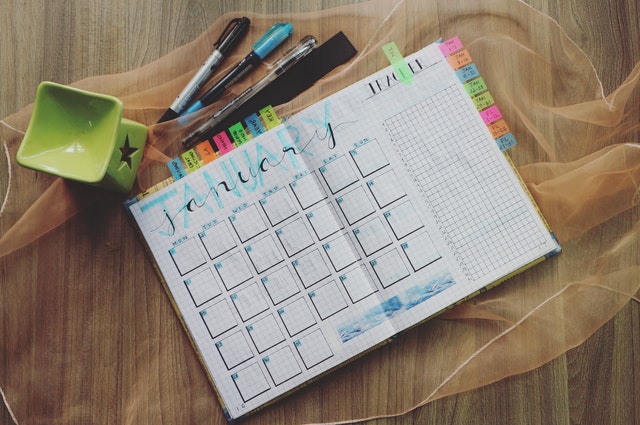How do you housebreak your dog? (UPDATED JUNE 2020)
A new dog can bring an abundance of joy into your life. But if your new family member is a puppy, you may need to house break them.
Housebreaking tells your puppy everything they need to know about living together with you, and it will ensure that your puppy will grow with you in your home, without breaking too many things in it!
Here are 4 ways that you can housebreak your dog quicker:
1) Everyone has to follow a daily schedule
And this includes your dog. Irrespective of whether you are bringing home a puppy or an older dog, you will need to create a routine for them. By feeding them, taking them out to eliminate, or out for walks at the same time every day, you build a routine. This helps your dog adjust to life around the house.

Feeding your dog regularly
Regular feeding is necessary if you want your dog to be healthy and happy. Depending on their age, their feeding schedule will differ.
Puppies need to be fed at least three to four times a day. Feed them once in the morning as soon as you wake up. Then, feed them every four hours for the next three meals.
An adult dog can get by with either two or three meals a day. Puppies need a lot of nutrition when they are young. This helps them grow. In the adult stage however, you have to feed them balanced meals twice or thrice a day.
If you are house breaking an older dog, then don't feed them more than twice a day.
In all these cases, you have to feed your dog at the same time every day. After a few weeks, your dog will naturally start to expect food at those times.
Toilet training your dog
Older dogs tend to be toilet trained, but if you're dealing with a puppy, you will need to train them yourself. Training a puppy where to eliminate requires patience and a keen eye.
Earlier on, your puppy may try to eliminate inside your home. There are some signs that can tell you this is about to happen:
Your puppy suddenly starts to act restless.
They appear interested in a certain area.
They start to bark or whine.
If you find that they've started to eliminate already, then make a loud noise. Tell them 'Stop!' or 'No!'. The idea is to startle them so that they stop. It's important to catch them during the act.
Punishing them if they've already eliminated will only confuse them. This makes your puppy feel scared about eliminating in front of you. Instead, clean the area thoroughly. There are repellent sprays available. These release a smell that tells your puppy they shouldn't pee in a certain area.
Using a spray will help prevent the puppy from peeing in the same area again. Similarly, if you find that your puppy has a preference about peeing in a certain part of the house, then use the spray there to stop them.
2) Taking your dog out daily
A dog needs to be taken out at least once a day. Aside from eliminating outside, dogs also need the fresh air. Going out on walks helps them expend their energy as well.

get the squirrels, doggo!
You will need to take your dog out at the same time every day. This helps them build an elimination schedule as well. That way, you don't have to worry about any accidents in the home.
Puppies need to eliminate more frequently than their adult counterparts. Most puppies need to urinate at least once every two hours. If you own a puppy, then expect that you will need to take them out frequently.
House breaking a puppy is easier than an adult dog. When you take them outside, pick a spot that they will regularly use while eliminating. Always take them there when it is time to eliminate.
To reinforce the idea that eliminating at that spot is good, give your puppy a treat each time they successfully complete their business there. Don't do this if they eliminate somewhere else. You can also give them positive words of encouragement if you don't have treats.
Remember to not wait too long to reward your puppy. They have a short attention span.
If you wait until you return home to reward your puppy, they won't understand what you're rewarding them for. To house train your puppy, reward them as soon as they eliminate outside.
If your puppy needs to eliminate outside their routine times, they will come to you. They may suddenly want your attention, appear restless, and start making noises. If you notice that your dog is doing this, then take them outside immediately.
3) Supervision and patience will go a long way
While an older dog may be able to spend time alone in the house, a puppy needs more attention.
A puppy is more likely to make a mess, and they need to find ways to expel their energy.
You won't be able to play with them all the time, but you need to keep an eye on them as often as you can.
One way of supervising them is to leash them to a piece of furniture. The leash should have enough length so that the puppy can move around, at least six feet length.
Always leave food and water near the puppy if they are leashed. This ensures that you know where your puppy is even if you aren't around.
Similarly, if you want your puppy to spend some time in the yard, you can leash them outside. When you do this, remember to leave them in a cool spot.
Under a tree or in a shaded area is a good idea. Leave a bowl of water near the puppy. Supervise your puppy, and if you see that they've played enough outside, bring them inside.
Making your dog comfortable wearing a leash is important. While house training a dog, teach them that a leash is okay.
You can do this by taking them out for walks on a leash every day. Earlier on, don't go for long walks. As your dog becomes more comfortable, you can go on longer walks with them.
4) House breaking your dog is a learning process both for you and your dog
Your house breaking journey with your dog probably won't be perfect. Animals can make mistakes, and that's okay.
If your dog urinates inside the house during the house breaking process, don't be mad at them. Instead, try to make sure that it doesn't happen again.
If you keep practicing your routine consistently, your dog will be house trained within a few weeks!
